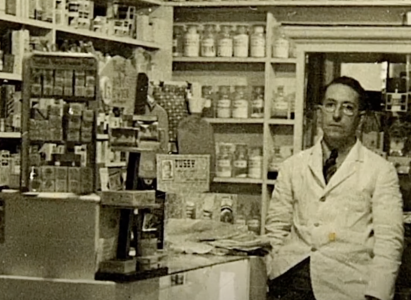He Helped a Man Hear Again – So Why Are Many Aussies Still Missing Out?
- Replies 0
In a small Melbourne clinic one summer day in the late 1970s, Professor Graeme Clark watched anxiously as a device he spent years inventing was switched on. In that moment, a man who had been profoundly deaf for years suddenly heard sound again – the first time a cochlear implant had ever restored hearing to a person.
'The expression on his face said it all,' Clark later recalled, describing how his patient could suddenly catch the rhythm of speech and the joy of simple sounds. It was a groundbreaking Australian moment – the birth of the 'bionic ear', an invention that would go on to help hundreds of thousands of people worldwide. Fast forward to today, and you might expect this life-changing Aussie innovation to be everywhere.
Yet the surprising truth is that many people – especially older Australians – who could benefit from cochlear implants are still living in silence, unaware or unsure of the technology. Why are so many 'missing out on the benefits,' as the inventor himself puts it? Let’s dive into the story behind the bionic ear, and explore why thousands of seniors with hearing loss aren’t using a device that could transform their lives.
The patient, Rod Saunders, had lost his hearing and with it, a big part of his world. After the implant was turned on, Saunders was able to hear faint sounds – a telephone ringing, the vibration of his own voice – sounds that had been lost to him for years. It wasn’t a perfect, instantaneous miracle; the early device had only a handful of electrodes. But it opened a door that had been firmly shut.
Over time, Saunders learned to interpret the new electrical sounds. He even reportedly understood words and sentences through this 'bionic ear' – an astonishing feat in an era when many experts doubted a deaf person could ever truly hear again via technology.
Clark has often recounted that historic day with pride and poignancy. 'When I saw him responding to sounds, I knew the world had changed for people with deafness,' he told reporters years later. For the first time, human hearing had been partially restored with an electronic implant – a fusion of medical science and engineering. And it was all happening right here in Australia.
Little wonder that the cochlear implant is frequently hailed as one of the greatest Australian inventions of the 20th century. The Melbourne-based company Cochlear was founded in 1981 to commercialise Clark’s device, and the so-called bionic ear soon spread around the globe. From a retired teacher in Sydney to a young child in Paris, thousands began to experience the sensation of sound thanks to this Aussie innovation.
Hearing loss is extremely common in older people, yet often under-addressed. According to the World Health Organization, one-third of people over 65 live with some level of disabling hearing loss. By age 75, that figure rises to almost one in two.
In Australia, this issue is very close to home: about 3.6 million Australians have some hearing loss, and as our population ages that number is only growing. It’s sometimes called a 'silent epidemic' – people lose hearing gradually, and too often it’s written off as just part of getting old.
But the impacts of untreated hearing loss aren’t so simple. Beyond the obvious frustrations – struggling to follow conversations, turning the TV volume up to max – there are serious health implications. Seniors with significant hearing loss can become socially isolated and may withdraw from activities they love. Even more alarming, research in recent years has linked untreated hearing loss to a higher risk of cognitive decline and dementia.
Essentially, when the ears go quiet, parts of the brain can go quiet too, potentially leading to memory and thinking difficulties over time. The good news? Studies suggest that treating hearing loss, whether with hearing aids or cochlear implants, can help keep older adults more engaged, happy, and even mentally sharper.
In one study, older patients who received cochlear implants showed improvements not just in hearing ability but also in their cognitive function and mood after a year of use. All of this underscores that hearing loss isn’t a trivial inconvenience – it’s a major health issue. And that’s what makes the low uptake of cochlear implants among eligible seniors so perplexing.
That’s the multi-thousand-dollar (or rather, priceless) question. Professor Clark himself has expressed concern that 'many are missing out on the benefits' of cochlear implants. And the statistics back this up. Worldwide, it’s estimated that only 5-10 per cent of adults who could benefit from a cochlear implant actually have one. Even in Australia, where we have top surgeons and a government health system that supports implant programs, there are thought to be tens of thousands of older folks who meet the criteria but haven’t gone ahead with the procedure.
Why the hesitancy? For starters, lack of awareness is a biggie. Many people simply don’t know what a cochlear implant is or assume it’s only for children or 'others worse off than me.' In fact, cochlear implants have been used in adults of all ages – there’s no upper age limit if you’re medically fit for the surgery. Yet, if no doctor or audiologist ever mentions the option, how would you even start considering it?
There’s also a bit of stigma and denial around hearing loss in general. Some seniors are embarrassed to admit they can’t hear well, or they fear a cochlear implant would make them feel 'old' or 'disabled.' Ironically, it can do the opposite – restoring confidence and independence by improving communication.
Then there are practical barriers. The implant process involves surgery (usually a few hours under anesthesia) and follow-up training and support to learn how to use the new 'electronic ear.' That can sound daunting, especially if you’re in your 70s or 80s.
However, the procedure is considered routine and safe, and recipients often say the toughest part was simply deciding to do it. Cost can be another perceived hurdle. Cochlear implants aren’t cheap, but in Australia many seniors can get them at low or no cost through public hospitals or private insurance. In other words, for those who are good candidates, the system is in place to help – but only if people come forward and take that step.
Experts in hearing health say that more education and referrals are needed. General practitioners and audiologists on the front lines could talk to patients about implants when hearing aids aren’t enough. Public outreach is crucial too. It might be through seniors’ groups, community seminars, even good old word of mouth: 'Hey, did you know there’s a device that can actually help you hear again when hearing aids no longer do the trick?'
The inventor Graeme Clark, now in his late 80s, has noted that it frustrates him to see people needlessly living in silence. In a recent interview he emphasized that the implant can dramatically improve quality of life for older adults, urging families to help their loved ones explore the option.

And that’s not our only claim to fame in health science. Australia also gave the world the spray-on skin technique for burn victims (invented by Dr. Fiona Wood in Perth, revolutionizing treatment for burns). And let’s not forget the Gardasil cervical cancer vaccine, co-developed by Professor Ian Frazer in Brisbane, which has saved millions of women’s lives globally by preventing HPV-related cancers. From the Black Box flight recorder to penicillin’s development to the bionic ear, Australians have a knack for ingenuity that improves lives. It’s a legacy we can all be proud of.
But an innovation is truly worthwhile only if people use it. The cochlear implant has its roots in Aussie soil and continues to advance (today’s implants are light-years ahead of the 1970s versions in sound quality).
Australia remains a leader in the field – our surgeons and clinics are among the best, and Cochlear (the company) is a global industry leader based in Sydney. In a way, the bionic ear encapsulates the Aussie spirit: practical, life-changing and a little bit against the odds. Four decades ago, Graeme Clark had to fight for funding and fend off skeptics who said 'electrical hearing' was a fantasy. Now, his invention is heralded as a marvel.
So why not make sure we’re taking full advantage of our very own miracle? For seniors experiencing severe hearing loss, the message is: you don’t have to just put up with it. If hearing aids aren’t cutting it, there is another path.
Source: Cochlear Australia and New Zealand / Youtube.
It’s not necessarily easy – it takes evaluation, surgery, and rehab – but the results can be extraordinary. Users often report feeling reborn socially: able to chat with friends, enjoy music, and stay connected with family in a way that wasn’t possible before. As one elderly implant recipient quipped, 'I’ve got technology in my head now – and I love it!'
At the end of the day, the cochlear implant story is about giving people back a sense that many of us take for granted. It’s about an Australian invention that sprang from compassion and clever science, and continues to give the gift of sound around the world. The only sad part is knowing that so many who could benefit aren’t yet tapping into it.

If you or someone you care about is struggling with hearing, it’s worth asking the question: could a bionic ear help bring the world of sound back into reach? After all, life is too short – and often too quiet – to not explore every option. Would you consider embracing a high-tech Aussie innovation to regain something as precious as your hearing?
'The expression on his face said it all,' Clark later recalled, describing how his patient could suddenly catch the rhythm of speech and the joy of simple sounds. It was a groundbreaking Australian moment – the birth of the 'bionic ear', an invention that would go on to help hundreds of thousands of people worldwide. Fast forward to today, and you might expect this life-changing Aussie innovation to be everywhere.
Yet the surprising truth is that many people – especially older Australians – who could benefit from cochlear implants are still living in silence, unaware or unsure of the technology. Why are so many 'missing out on the benefits,' as the inventor himself puts it? Let’s dive into the story behind the bionic ear, and explore why thousands of seniors with hearing loss aren’t using a device that could transform their lives.
The Day Silence Was Broken
It’s hard not to get a bit emotional about the cochlear implant’s origin story. Back in 1978, Graeme Clark – a professor driven by the memory of his deaf father – performed the first multi-channel cochlear implant surgery at the Royal Victorian Eye and Ear Hospital in Melbourne.The patient, Rod Saunders, had lost his hearing and with it, a big part of his world. After the implant was turned on, Saunders was able to hear faint sounds – a telephone ringing, the vibration of his own voice – sounds that had been lost to him for years. It wasn’t a perfect, instantaneous miracle; the early device had only a handful of electrodes. But it opened a door that had been firmly shut.
Over time, Saunders learned to interpret the new electrical sounds. He even reportedly understood words and sentences through this 'bionic ear' – an astonishing feat in an era when many experts doubted a deaf person could ever truly hear again via technology.
Clark has often recounted that historic day with pride and poignancy. 'When I saw him responding to sounds, I knew the world had changed for people with deafness,' he told reporters years later. For the first time, human hearing had been partially restored with an electronic implant – a fusion of medical science and engineering. And it was all happening right here in Australia.
Little wonder that the cochlear implant is frequently hailed as one of the greatest Australian inventions of the 20th century. The Melbourne-based company Cochlear was founded in 1981 to commercialise Clark’s device, and the so-called bionic ear soon spread around the globe. From a retired teacher in Sydney to a young child in Paris, thousands began to experience the sensation of sound thanks to this Aussie innovation.
Hearing Loss – A Silent Epidemic for Seniors
Given the cochlear implant’s almost storybook beginning, you might think the tale ends there – invention succeeds, world benefits, case closed. But in reality, the story of hearing loss – especially among seniors – is bigger and more complex.Hearing loss is extremely common in older people, yet often under-addressed. According to the World Health Organization, one-third of people over 65 live with some level of disabling hearing loss. By age 75, that figure rises to almost one in two.
In Australia, this issue is very close to home: about 3.6 million Australians have some hearing loss, and as our population ages that number is only growing. It’s sometimes called a 'silent epidemic' – people lose hearing gradually, and too often it’s written off as just part of getting old.
But the impacts of untreated hearing loss aren’t so simple. Beyond the obvious frustrations – struggling to follow conversations, turning the TV volume up to max – there are serious health implications. Seniors with significant hearing loss can become socially isolated and may withdraw from activities they love. Even more alarming, research in recent years has linked untreated hearing loss to a higher risk of cognitive decline and dementia.
Essentially, when the ears go quiet, parts of the brain can go quiet too, potentially leading to memory and thinking difficulties over time. The good news? Studies suggest that treating hearing loss, whether with hearing aids or cochlear implants, can help keep older adults more engaged, happy, and even mentally sharper.
In one study, older patients who received cochlear implants showed improvements not just in hearing ability but also in their cognitive function and mood after a year of use. All of this underscores that hearing loss isn’t a trivial inconvenience – it’s a major health issue. And that’s what makes the low uptake of cochlear implants among eligible seniors so perplexing.
The Bionic Ear: Underused and Underappreciated
You would imagine that an invention capable of giving back the gift of sound would be in hot demand. For people with severe hearing loss who don’t get enough benefit from hearing aids, a cochlear implant can be a game-changer. It won’t restore hearing to normal, but it often allows users to understand speech, talk on the phone, and reconnect with the sounds of life – from birds chirping to grandkids laughing. So, why aren’t more people getting it?That’s the multi-thousand-dollar (or rather, priceless) question. Professor Clark himself has expressed concern that 'many are missing out on the benefits' of cochlear implants. And the statistics back this up. Worldwide, it’s estimated that only 5-10 per cent of adults who could benefit from a cochlear implant actually have one. Even in Australia, where we have top surgeons and a government health system that supports implant programs, there are thought to be tens of thousands of older folks who meet the criteria but haven’t gone ahead with the procedure.
Why the hesitancy? For starters, lack of awareness is a biggie. Many people simply don’t know what a cochlear implant is or assume it’s only for children or 'others worse off than me.' In fact, cochlear implants have been used in adults of all ages – there’s no upper age limit if you’re medically fit for the surgery. Yet, if no doctor or audiologist ever mentions the option, how would you even start considering it?
There’s also a bit of stigma and denial around hearing loss in general. Some seniors are embarrassed to admit they can’t hear well, or they fear a cochlear implant would make them feel 'old' or 'disabled.' Ironically, it can do the opposite – restoring confidence and independence by improving communication.
Then there are practical barriers. The implant process involves surgery (usually a few hours under anesthesia) and follow-up training and support to learn how to use the new 'electronic ear.' That can sound daunting, especially if you’re in your 70s or 80s.
However, the procedure is considered routine and safe, and recipients often say the toughest part was simply deciding to do it. Cost can be another perceived hurdle. Cochlear implants aren’t cheap, but in Australia many seniors can get them at low or no cost through public hospitals or private insurance. In other words, for those who are good candidates, the system is in place to help – but only if people come forward and take that step.
Experts in hearing health say that more education and referrals are needed. General practitioners and audiologists on the front lines could talk to patients about implants when hearing aids aren’t enough. Public outreach is crucial too. It might be through seniors’ groups, community seminars, even good old word of mouth: 'Hey, did you know there’s a device that can actually help you hear again when hearing aids no longer do the trick?'
The inventor Graeme Clark, now in his late 80s, has noted that it frustrates him to see people needlessly living in silence. In a recent interview he emphasized that the implant can dramatically improve quality of life for older adults, urging families to help their loved ones explore the option.

Professor Graeme Clark in the early days. Image source: Cochlear Australia and New Zealand / Youtube.
An Australian Legacy of Innovation and Hope
The cochlear implant isn’t just a medical device – it’s also a proud Australian success story. It exemplifies how Australia punches above its weight in medical innovation. Think about it: a pioneering Aussie professor developed the world’s first bionic ear and changed countless lives.And that’s not our only claim to fame in health science. Australia also gave the world the spray-on skin technique for burn victims (invented by Dr. Fiona Wood in Perth, revolutionizing treatment for burns). And let’s not forget the Gardasil cervical cancer vaccine, co-developed by Professor Ian Frazer in Brisbane, which has saved millions of women’s lives globally by preventing HPV-related cancers. From the Black Box flight recorder to penicillin’s development to the bionic ear, Australians have a knack for ingenuity that improves lives. It’s a legacy we can all be proud of.
But an innovation is truly worthwhile only if people use it. The cochlear implant has its roots in Aussie soil and continues to advance (today’s implants are light-years ahead of the 1970s versions in sound quality).
Australia remains a leader in the field – our surgeons and clinics are among the best, and Cochlear (the company) is a global industry leader based in Sydney. In a way, the bionic ear encapsulates the Aussie spirit: practical, life-changing and a little bit against the odds. Four decades ago, Graeme Clark had to fight for funding and fend off skeptics who said 'electrical hearing' was a fantasy. Now, his invention is heralded as a marvel.
So why not make sure we’re taking full advantage of our very own miracle? For seniors experiencing severe hearing loss, the message is: you don’t have to just put up with it. If hearing aids aren’t cutting it, there is another path.
Source: Cochlear Australia and New Zealand / Youtube.
It’s not necessarily easy – it takes evaluation, surgery, and rehab – but the results can be extraordinary. Users often report feeling reborn socially: able to chat with friends, enjoy music, and stay connected with family in a way that wasn’t possible before. As one elderly implant recipient quipped, 'I’ve got technology in my head now – and I love it!'
At the end of the day, the cochlear implant story is about giving people back a sense that many of us take for granted. It’s about an Australian invention that sprang from compassion and clever science, and continues to give the gift of sound around the world. The only sad part is knowing that so many who could benefit aren’t yet tapping into it.
Key Takeaways
- The cochlear implant (“bionic ear”) was invented by Australian professor Graeme Clark, who in 1978 helped a deaf man hear again – a world-first achievement.
- Many seniors with severe hearing loss aren’t using cochlear implants, even though they could dramatically improve their hearing and quality of life. Lack of awareness, stigma, and fear of surgery are major factors.
- Treating hearing loss is important: research links untreated hearing loss to social isolation and even cognitive decline, while interventions like hearing aids or implants can improve mood, brain function, and overall well-being in older adults.
- Australia is a world leader in medical innovation – from the cochlear implant to the spray-on skin for burns and the cervical cancer vaccine – and Australians can take pride in and benefit from these home-grown breakthroughs.
If you or someone you care about is struggling with hearing, it’s worth asking the question: could a bionic ear help bring the world of sound back into reach? After all, life is too short – and often too quiet – to not explore every option. Would you consider embracing a high-tech Aussie innovation to regain something as precious as your hearing?









